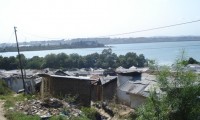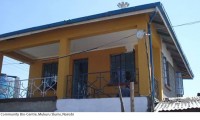- The Role of China in Preventing Conflicts in Africa: African Perspective
- Impacts of Climate Change on Africa: Implications for Peace and Security
- Implications of Article 184 in Classification, Governance and Management of Urban Areas
- Nairobi: A city without a master plan
- Network analysis for resources towards low-income housing
- Agent-based modelling of urban sanitation: informal settlements in Nairobi
- Semantic mark-up of information on sanitation initiatives in informal settlements
- Reflecting on international donor agencies’ influences on self-help housing policies in Kenya and South Africa
- A thin veil of protection: fragility of informal tenure in Nairobi and Johannesburg
- Bottlenecks of access to housing finance by the low-income in Kenya and South Africa.
- A cost modelling design strategy for dweller-initiated transformations in urban housing.
- Myths and realities of segregation in post-apartheid human settlements in Johannesburg.
- Housing networks in different political economies: the cases of Ivory Park, Johannesburg and Dandora, Kenya.
- Slum upgrading in the complex context of policy change: the case of Nairobi.
- Theoretical conceptualisations of urban segregation and their relevance to housing in post-apartheid South Africa.
- A network approach to understanding the role of the market and the state in housing: the cases of Nairobi, Kenya and Johannesburg South Africa.
- Potential professional, technical, regulatory, institutional and training conflicts and opportunities opened through the People’s Housing Process (PHP) policy shift in South Africa.
- Urbanisation and housing challenges: cities in Africa.
- Sustainable Self-help Housing in South Africa.
- Architecture
- Community Dev.
- Env. & Climate Change
- Sustainable Urban Dev.
- Symbiocity, Sustainable Urban Dev. Programme for Kenya
- Understanding the Tipping Point of Urban Violence
- Process Mapping [Nairobi, Kenya] for Dev.Cooperation
- “Safe + Smart Cities”
- A Global Perspective on Engineering Sustainable Building Systems (2008)
- Nairobi, an Urban Portrait, with ETH Zurich, Harvard Graduate School
- Research on Construction Methods & Materials in East Africa
- Research & Publications















